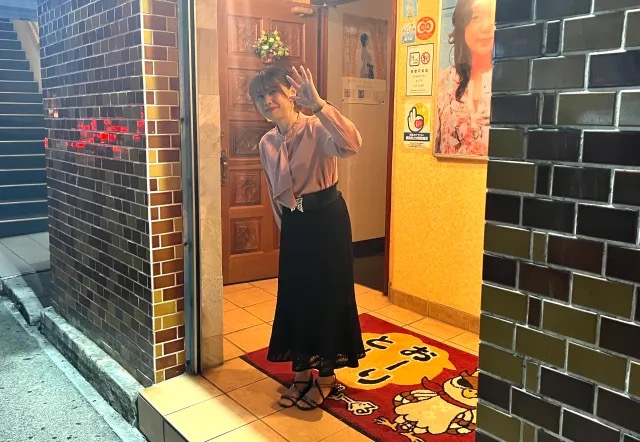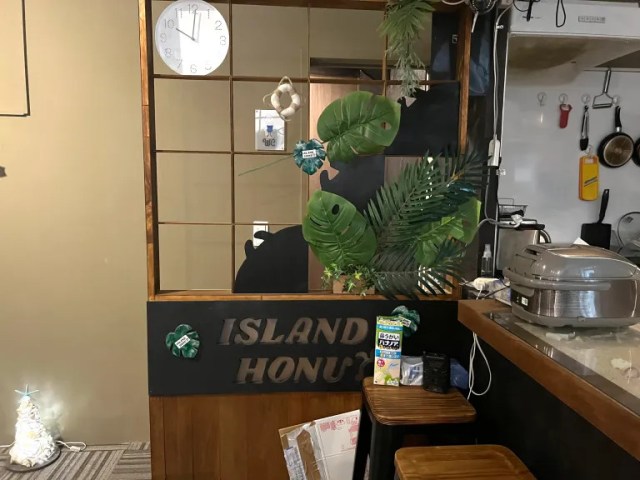shared accomodation
Quite common in Western countries, the concept of shared accommodation in Japan is still relatively new. However, according to Oak House, a guest house and apartment operator in Tokyo, such accommodation is gaining in popularity. Fifteen years ago, the company managed about 150 units; today that figure has risen to 2,300. Shunned by some as being inconvenient and a hassle, others are being drawn to added-value properties featuring amenities such as yoga studios and home theater facilities. Oak House said there is a waiting list of 100 people at its most popular location.
Shared accommodation also has the benefit of being cost effective as no key money (a mandatory, nonrefundable payment, typically equivalent to two months’ rent, given to the landlord for the privilege of being able to live in the unit) or security deposit (typically two months’ rent, and though technically refundable, is seldom returned in full as apartment cleaning fees and other expenses are deducted) are required. Additionally, furnishings are provided, something else that is not common in Japan, meaning initial outlays can be kept to a minimum.
With the popularity of this type of housing increasing, companies in Japan are concocting various inducements in an effort to draw in renters.


 Highest Starbucks in Japan set to open this spring in the Tokyo sky
Highest Starbucks in Japan set to open this spring in the Tokyo sky Yakuzen ramen restaurant in Tokyo is very different to a yakuza ramen restaurant
Yakuzen ramen restaurant in Tokyo is very different to a yakuza ramen restaurant Tokyo Skytree turns pink for the cherry blossom season
Tokyo Skytree turns pink for the cherry blossom season Japan just had its first same-month foreign tourist decrease in four years
Japan just had its first same-month foreign tourist decrease in four years Adorable Totoro acorn key holders come with a special guest hidden inside[Photos]
Adorable Totoro acorn key holders come with a special guest hidden inside[Photos] The 10 most annoying things foreign tourists do on Japanese trains, according to locals
The 10 most annoying things foreign tourists do on Japanese trains, according to locals Starbucks Japan adds a Shine Muscat Grape Frappuccino to the menu for a limited time
Starbucks Japan adds a Shine Muscat Grape Frappuccino to the menu for a limited time Is Sapporio’s Snow Festival awesome enough to be worth visiting even if you hate the snow? [Pics]
Is Sapporio’s Snow Festival awesome enough to be worth visiting even if you hate the snow? [Pics] Conan O’Brien sits down for a traditional kaiseki meal with Jordan Schlansky in Japan 【Video】
Conan O’Brien sits down for a traditional kaiseki meal with Jordan Schlansky in Japan 【Video】 Is this the most relaxing Starbucks in Japan?
Is this the most relaxing Starbucks in Japan? Starbucks Japan releases new sakura goods and drinkware for cherry blossom season 2026
Starbucks Japan releases new sakura goods and drinkware for cherry blossom season 2026 Naruto and Converse team up for new line of shinobi sneakers[Photos]
Naruto and Converse team up for new line of shinobi sneakers[Photos] Japan has trams that say “sorry” while they ride around town…but why?
Japan has trams that say “sorry” while they ride around town…but why? Sakura Totoro is here to get spring started early with adorable pouches and plushies
Sakura Totoro is here to get spring started early with adorable pouches and plushies Starbucks Japan unveils new sakura Frappuccino for cherry blossom season 2026
Starbucks Japan unveils new sakura Frappuccino for cherry blossom season 2026 Poop is in full bloom at the Unko Museums for cherry blossom season
Poop is in full bloom at the Unko Museums for cherry blossom season Now is the time to visit one of Tokyo’s best off-the-beaten-path plum blossom gardens
Now is the time to visit one of Tokyo’s best off-the-beaten-path plum blossom gardens Playing Switch 2 games with just one hand is possible thanks to Japanese peripheral maker
Playing Switch 2 games with just one hand is possible thanks to Japanese peripheral maker Japan’s newest Shinkansen has no seats…or passengers [Video]
Japan’s newest Shinkansen has no seats…or passengers [Video] Foreigners accounting for over 80 percent of off-course skiers needing rescue in Japan’s Hokkaido
Foreigners accounting for over 80 percent of off-course skiers needing rescue in Japan’s Hokkaido Super-salty pizza sends six kids to the hospital in Japan, linguistics blamed
Super-salty pizza sends six kids to the hospital in Japan, linguistics blamed Foreign tourists in Japan will get free Shinkansen tickets to promote regional tourism
Foreign tourists in Japan will get free Shinkansen tickets to promote regional tourism Take a trip to Japan’s Dododo Land, the most irritating place on Earth
Take a trip to Japan’s Dododo Land, the most irritating place on Earth Archfiend Hello Kitty appears as Sanrio launches new team-up with Yu-Gi-Oh【Pics】
Archfiend Hello Kitty appears as Sanrio launches new team-up with Yu-Gi-Oh【Pics】 Survey asks foreign tourists what bothered them in Japan, more than half gave same answer
Survey asks foreign tourists what bothered them in Japan, more than half gave same answer Japan’s human washing machines will go on sale to general public, demos to be held in Tokyo
Japan’s human washing machines will go on sale to general public, demos to be held in Tokyo Starbucks Japan releases new drinkware and goods for Valentine’s Day
Starbucks Japan releases new drinkware and goods for Valentine’s Day We deeply regret going into this tunnel on our walk in the mountains of Japan
We deeply regret going into this tunnel on our walk in the mountains of Japan Studio Ghibli releases Kodama forest spirits from Princess Mononoke to light up your home
Studio Ghibli releases Kodama forest spirits from Princess Mononoke to light up your home Major Japanese hotel chain says reservations via overseas booking sites may not be valid
Major Japanese hotel chain says reservations via overseas booking sites may not be valid Put sesame oil in your coffee? Japanese maker says it’s the best way to start your day【Taste test】
Put sesame oil in your coffee? Japanese maker says it’s the best way to start your day【Taste test】 No more using real katana for tourism activities, Japan’s National Police Agency says
No more using real katana for tourism activities, Japan’s National Police Agency says The 10 most annoying things foreign tourists do on Japanese trains, according to locals
The 10 most annoying things foreign tourists do on Japanese trains, according to locals Starbucks Japan adds a Shine Muscat Grape Frappuccino to the menu for a limited time
Starbucks Japan adds a Shine Muscat Grape Frappuccino to the menu for a limited time Is Sapporio’s Snow Festival awesome enough to be worth visiting even if you hate the snow? [Pics]
Is Sapporio’s Snow Festival awesome enough to be worth visiting even if you hate the snow? [Pics] Conan O’Brien sits down for a traditional kaiseki meal with Jordan Schlansky in Japan 【Video】
Conan O’Brien sits down for a traditional kaiseki meal with Jordan Schlansky in Japan 【Video】 Is this the most relaxing Starbucks in Japan?
Is this the most relaxing Starbucks in Japan? Is a snow day the perfect day to beat the crowds at a popular ramen restaurant? [Experiment]
Is a snow day the perfect day to beat the crowds at a popular ramen restaurant? [Experiment] Japanese gamer furniture company creates cabinets just for collectible trading card gamers【Pics】
Japanese gamer furniture company creates cabinets just for collectible trading card gamers【Pics】 New Japanese Kit Kat flavour on its way, as finalists from international voting announced
New Japanese Kit Kat flavour on its way, as finalists from international voting announced Poop is in full bloom at the Unko Museums for cherry blossom season
Poop is in full bloom at the Unko Museums for cherry blossom season Tokyo Station staff share their top 10 favorite ekiben
Tokyo Station staff share their top 10 favorite ekiben Smoking marijuana is now illegal in Japan, can get you 7 years in prison
Smoking marijuana is now illegal in Japan, can get you 7 years in prison “In the name of the moon!” See the Sailor Senshi as ’90s video game sprites
“In the name of the moon!” See the Sailor Senshi as ’90s video game sprites Tribute to Nausicaä: Ohm-rice of the Valley of the Wind
Tribute to Nausicaä: Ohm-rice of the Valley of the Wind Hey, 2020s kids! The ’90s have a sticker picture message waiting for you in Tokyo
Hey, 2020s kids! The ’90s have a sticker picture message waiting for you in Tokyo